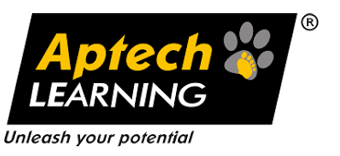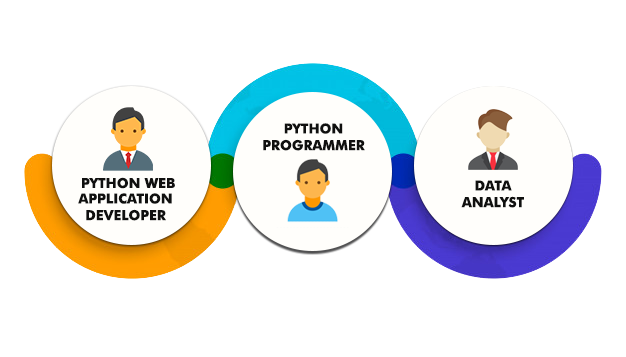PYTHON
Specialization software courses for students/professionals
Aptech Certified Python Development
Python, often hailed as one of the most versatile and accessible programming languages, has become a cornerstone in the realm of technology and software development. Its simplicity, readability, and extensive libraries make it an ideal choice for a wide range of applications. In this essay, we delve into the world of Python, exploring its history, core strengths, and the abundant job prospects it offers to professionals in the field of technology.
The Evolution of Python
Guido van Rossum introduced Python in the late 1980s. Since its inception, Python has undergone significant evolution and adaptation to cater to diverse application domains. The language’s development can be broadly divided into the following phases:
Early Years: Python started as a small, side project and gained traction in the early 1990s with its simple and clean syntax. It quickly became popular in the academic and scientific communities.
Python 2 vs. Python 3: Python 2 and Python 3 are two major versions of Python that coexisted for many years. However, Python 2 reached its end of life in 2020, marking a crucial transition in the language’s history.
Python 3.x: Python 3 brought several essential improvements, including better Unicode support, enhanced syntax, and improved performance. It is the current and recommended version of Python for new projects.
Core Strengths of Python
Python’s widespread popularity and job prospects can be attributed to its core strengths:
Readability and Simplicity: Python’s elegant and clean syntax makes it easy to read and write, reducing the likelihood of errors. This simplicity fosters rapid development and collaboration among developers.
Versatility: Python excels in a multitude of applications, from web development (Django, Flask) and data analysis (Pandas, NumPy) to scientific computing (SciPy) and artificial intelligence (TensorFlow, PyTorch).
Vast Ecosystem: Python boasts a rich library ecosystem, with packages and modules available for almost any task. This accelerates development and reduces the need to reinvent the wheel.
Community and Support: Python has a thriving global community of developers who contribute to its development and provide extensive support through forums, tutorials, and open-source projects.
Job Prospects in Python
The job prospects in the Python ecosystem are abundant and continue to grow due to several key factors:
Data Science and Machine Learning: Python has emerged as the de facto language for data science and machine learning. Its libraries, such as Pandas, Scikit-Learn, and TensorFlow, have made Python indispensable in fields like data analysis, artificial intelligence, and machine learning.
Web Development: Python is widely used in web development, thanks to frameworks like Django and Flask. These frameworks simplify web application development, making Python developers sought after in the web development industry.
Scientific and Research Fields: Python’s simplicity and extensive scientific libraries have made it a staple in academia and research. Scientists and researchers use Python for tasks ranging from simulations to data analysis.
Automation and Scripting: Python’s versatility makes it an excellent choice for automation and scripting. This is particularly valuable in fields like DevOps, where Python scripts are used for tasks such as configuration management and deployment automation.
High Demand and Competitive Salaries: The high demand for Python developers has led to competitive salaries and attractive compensation packages. Python professionals are among the best-paid in the software development industry.
Conclusion
In conclusion, Python’s evolution from a simple scripting language to a versatile and pervasive powerhouse has significantly impacted the technology landscape. Its readability, vast library ecosystem, and community support have made it an essential tool for developers across diverse industries. The job prospects for Python professionals are bright, driven by the language’s applications in data science, web development, research, and automation. As Python continues to evolve and adapt to emerging technologies, it remains a compelling choice for anyone seeking a rewarding career in the tech industry.
The mission of the Python Software Foundation is to promote, protect, and advance the Python programming language, and to support and facilitate the growth of a diverse and international community of Python programmers.
Course Highlights:
- HTML5, CSS & Javascript
- UI/UX for Responsive Design
- Programming with Javascript
- Programming with Python
- Angular JS
- JSON
- Node.js
- Web Application Development
- Django framework for python
- Querying with MySQL
- Agile & DevOps
Course Duration
Total Duration: 280 Hours



